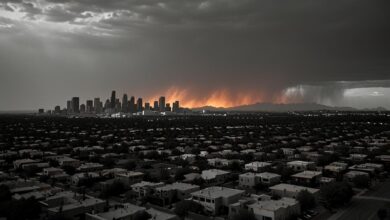Mass evacuation in Rafah as IDF prepares for major operation

In response to an announced Israeli military operation, tens of thousands of Palestinians are evacuating from Rafah in southern Gaza, prompting concerns about a humanitarian crisis amid severe shortages of supplies.
Tens of thousands of Palestinians are evacuating Rafah in southern Gaza, following an order by the Israel Defense Forces (IDF) as part of preparations for a significant military operation. This decision by the IDF affects eastern neighbourhoods of Rafah and is expected to impact over 150,000 residents, marking one of the largest displacements in the ongoing seven-month conflict.
Israeli Prime Minister Benjamin Netanyahu has asserted the necessity of the assault, linking it to the alleged presence of key Hamas leaders in the area. The military has advised the evacuation of central Rafah, indicating the potential for imminent action. The displaced are directed towards zones like al-Mawasi, although reports suggest that these areas face severe shortages of essential supplies such as food, water, and medical care.
Aid agencies are reportedly finding it challenging to deliver assistance to affected regions due to border closures and active conflict, exacerbating the humanitarian crisis in southern and central Gaza. The continued conflict has resulted in substantial casualties, with over 34,970 Palestinians, mostly civilians, having lost their lives in the conflict so far.
Diplomatic efforts to broker a ceasefire have not been successful, with Israel dismissing proposed agreements. The US has voiced concerns over Israel’s actions potentially contravening international law, though Israeli officials maintain their operations are lawful within the context of armed conflict.
In a separate development, Gary Lineker, a former footballer and current Match of the Day host, has publicly criticized Israel’s military actions in Gaza, describing them as “the worst thing” he has witnessed. In an interview, Lineker condemned the impact on civilian populations, particularly children, reaffirming his decision to speak out despite the risk of backlash. Lineker also addressed issues surrounding accusations of anti-Semitism, clarifying that his criticisms of Israeli policies were not reflective of sentiments against Jewish people. This stance by Lineker follows recent scrutiny over his comments related to UK asylum policy and raises further discussion about the parameters of public commentary by figures in the media.








